|
"Educational ZIPoPo"
Lessons in Schools, Kindergartens, Orphanages, 1994-2016
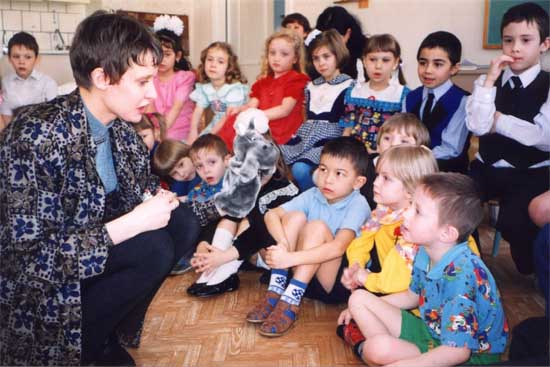
Programs aimed at moral education for children,
adolescents and youth, based on the ZIPoPo method, were launched and
successfully held in numerous secondary schools of Kazan, Leninogorsk, Perm,
Moscow and other cities of the Russian Federation and in the countries of the
former USSR. The programs received much appreciation from the students and their parents,
teachers and administrators of the schools. Programs aimed at development of
important social competencies for high school students, based on the ZIPoPo
method, were held in the Kazan Academy of Architecture and Construction, in
Perm State University and in the Brest State University (Belarus). Programs
aimed at helping children in difficult life situations to adapt to future adult
life and to acquire useful social skills were held in the orphanages in
Korsakov, Moscow, Kazan and other cities of Russian Federation.
View the kindergarten video
|
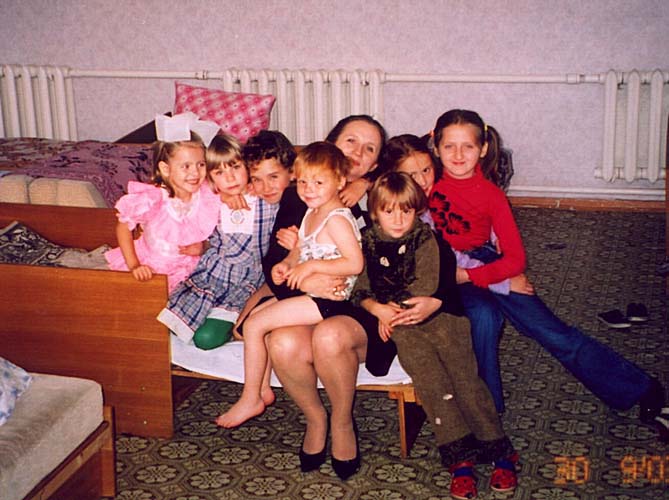
On the picture this girl is second from the left
|
In Russia, on the island of Sakhalin, in the
city of Korsakov a ZIPoPo show was performed in the orphanage. Before the show
started, the head of the orphanage told us about the kids and their stories.
One of them, a 6 year old girl, never spoke a word in two years in the
orphanage. She was brought to the facility in a very bad shape, being severely
beaten and abused by her drunken parents. When the show started, she was
sitting in the corner and watching frowningly like a little frightened mouse
looking out of its hole. The drama depicted a story of a girl who was falsely
accused in stealing. When the discussion started, the silent girl looked
embarrassed and concerned; something was definitely going on in her little
heart. All of a sudden she raised her hand. I looked at the facilitator who was
giving a floor to other kids and noticed that she doesn’t look at this little
girl. I waved to her and pointed at the girl, meaning “Ask her!” The
facilitator waved away as if saying “No use to ask her, she is not talking”.
The girl kept holding her hand, and I kept waving to the facilitator. Finally
she understood and gave her the floor. Little girl stood up and, after almost a
minute of painful attempts started talking! She said: “Please, please don’t
blame her, she is not guilty”. I looked at the facilitator and at the teachers
together with the principal – they all were crying. This was the first time
they heard her talking.
|
|
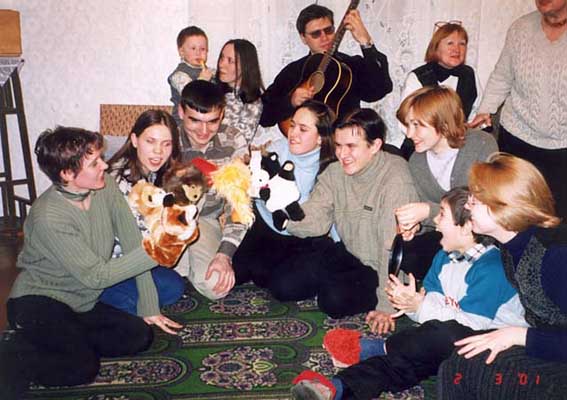
|
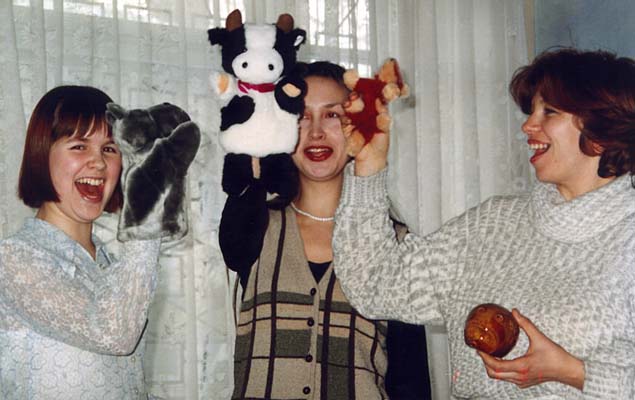
|
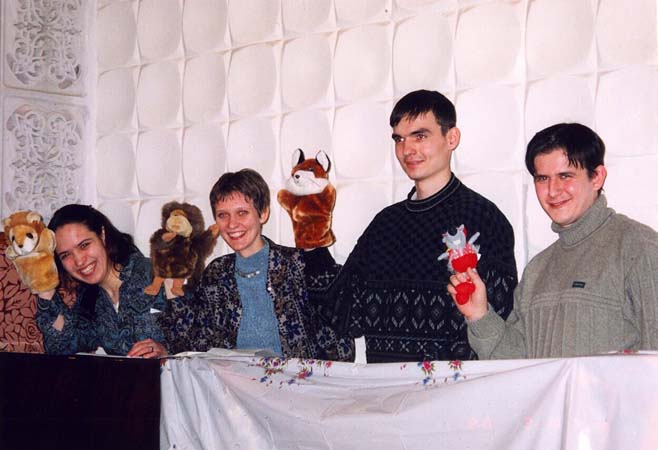
|
|

![]() Home
Home ![]() What is ZIPoPo
What is ZIPoPo ![]() Projects
Projects ![]() Trainings
Trainings ![]() Author and Founder
Author and Founder ![]() Gallery
Gallery ![]() Awards
Awards ![]() Publications
Publications ![]() Partners
Partners ![]() Contacts
Contacts![]()
![]()




